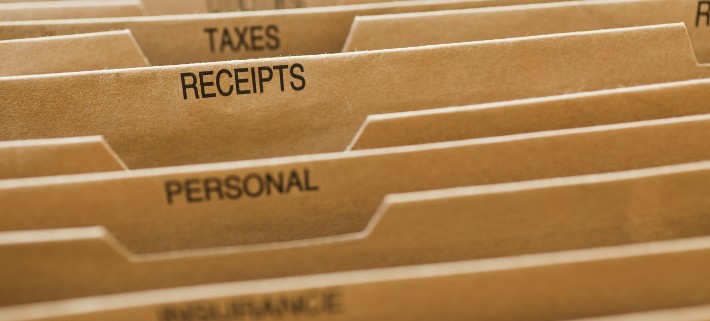Travel Nursing Pay – Record Keeping for Tax Purposes: Part 1
Travel nurses must continually maintain accurate tax records so that they can quickly and efficiently complete their taxes, or transmit the records quickly and efficiently to their tax adviser. Maintaining adequate records for tax purposes is extremely important to maximizing your potential and minimizing your input as a travel nurse. It will not only ensure that you are prepared for an audit should one occur, but it will also ensure that you are able to quickly and conveniently deal with tax related issues come tax time.
You don’t want to be stuck scrambling at the last-minute to generate adequate documents. This often requires that you call all the travel nursing agencies that you worked with and repeat conversations and actions that you’ve already taken. It’s very important to remember that you’ll want to keep all records pertaining to travel nursing jobs for at least 6 years. In this series we’ll discuss the important documents, tactics, and tools you need to get organized.
Keeping your travel nursing contract for tax purposes
As mentioned previously, it is of the utmost importance that you receive and keep copies of all your contracts. For tax purposes, you should make sure that the contract clearly states and the following:
1) Start Date
2) End Date
3) Name of Facility
4) Complete Address of Facility
5) Taxable Hourly Rate
6) Amounts of ALL Tax Free Stipends to be Paid
Again, the contract provides you with solid proof that your employment is realistically expected to be temporary as opposed to indefinite. The start and end dates make this perfectly clear. It also verifies the work location is in an area that requires you to rest or sleep to meet the demands of your job while traveling.
Finally, the contract clearly quantifies the amount that you are to receive in tax-free stipends. This is important because this information will not appear on your W2. Your W2 will only show your taxable earnings. So having the contract allows you to easily quantify and prove the totals of the tax-free money that you received.
Keeping your travel nursing pay stubs for tax purposes
While many may disagree, I would argue that keeping your pay stubs is also an important aspect of maintaining accurate tax records. There are two primary reasons for this.
First, the contract provides evidence that there was an agreement, but does not provide proof that the contract was completed. Contracts can go uncompleted for any number of reasons. If a contract ends early, the chances of you receiving written notification to update your records are slim and none.
You are most likely going to pick up another travel job, perhaps at another hospital in the same location. This may give the illusion that you were working two jobs at the same time in the same location which would also give the illusion that you were collecting double the stipends. Pay stubs provide a back up record.
Second, it’s very possible that you receive less or more in stipend money than your contract says you will. Most, if not all, agencies will only pay stipend money for hours worked. In some cases, the stipends are paid daily. In which case, if you miss a shift or get cancelled, the stipend money for that day would be docked. In other cases, the stipends are prorated by the hour and if your time sheet is short of the contracted hours, then the agency will dock the stipend by the prorated amount. In these cases, you may actually earn less in stipend money over the course of your assignment than the contract indicates. However, that doesn’t mean that the costs weren’t incurred. You were still paying for lodging and M&IE. As a result, you may be able to write off these amounts on your taxes to increase your tax savings.
Furthermore, some agencies will also pay you additional stipend money for working additional hours. In this case, you may end up earning more tax-free money than is indicated by the contract. While this may be great on the surface, it may result in your receiving tax-free stipends that exceed the allowable limits. You’ll want to be sure that you’re paying taxes on the difference if you wish to remain squeaky clean.
While both prorating by the hour and paying extra stipend money is probably in violation of tax laws, they both happen none the less, and prorating is extremely common. It could be argued that they both constitute a recharacterization of wages because they essentially treat the tax-free stipends as an hourly wage. That doesn’t change the fact they’re being paid to you that way and maintaining your pay stub records is something I believe is worth your while.
The best case scenario is to ensure that your agency is mailing the pay stubs to your tax home address. You can easily save them if this is the case. However, many agencies rely on electronic reporting of pay stubs. They provide travelers with a user name and password to log on to the agency’s payroll system and access the pay stubs on-line.
The advantage is that nurses have immediate access from anywhere they have an internet connection. The disadvantage is that travelers won’t be able to conveniently send them to a tax adviser. Also, you will undoubtedly work with multiple agencies over the course of the year, so having your pay stubs in multiple locations will be disorganized.
To address this, you can print your pay stubs to PDF and save them in a folder on your computer. There are many free downloads that offer the capability to print to PDF. I use CutePDF. Conduct a web search for it if you’d like to use it, or search for “free PDF converter”.
In our next blog post in this series, we’ll discuss some of the other important tax record keeping issues for travel nurses.





